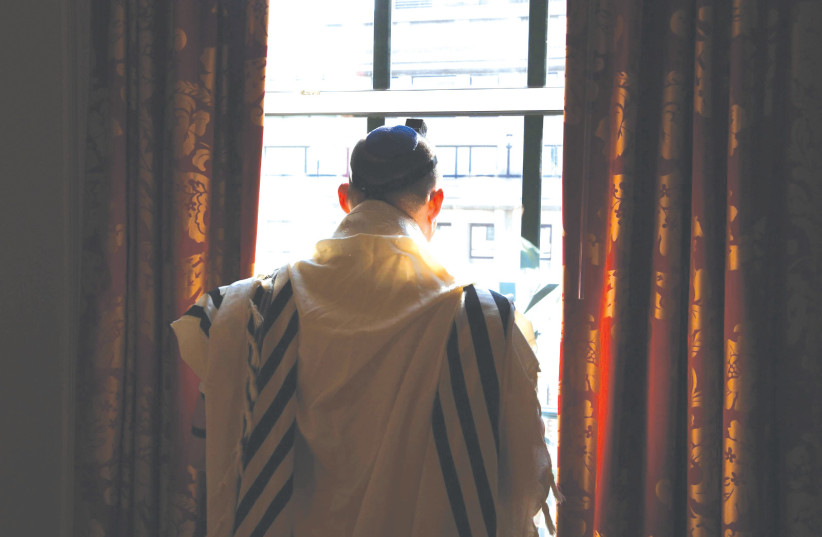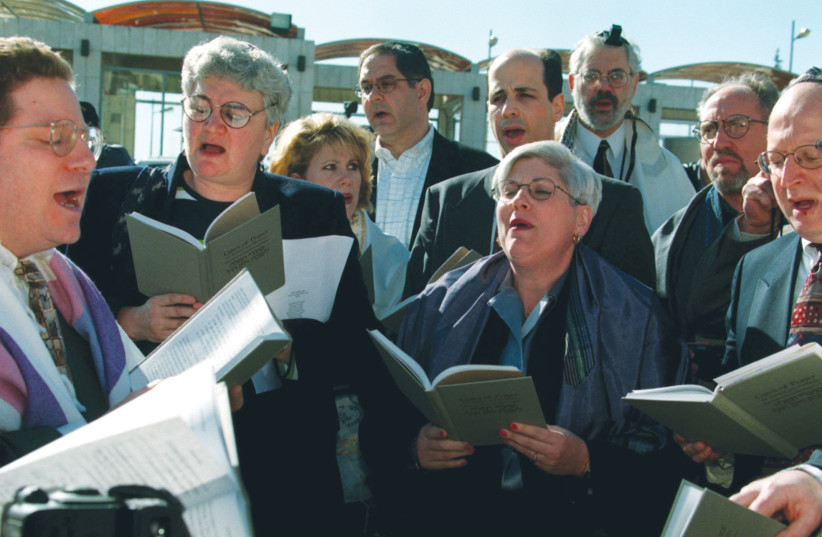Some American Jewish groups felt disenfranchised from Israel during Netanyahu’s term due to his haredi parties alliance — Bennett could change that.

For Prime Minister Naftali Bennett, this year’s UN General Assembly meeting, which he is set to address on Monday, is the equivalent of his own diplomatic debutante ball.
This is Bennett’s coming out on the world stage, his first appearance in front of an international audience. He will seek to make an impression, to set himself apart from his predecessor, Benjamin Netanyahu, who used to love these “balls,” and often shone at them.
This event, this “ball,” is so important that Bennett is attending even though it means spending a religious holiday (Shmini Atzeret/Simhat Torah) abroad – something prime ministers rarely do – and away from his family. Bennett is scheduled to fly back to Israel on Wednesday, which is a yom tov (holiday) for Jews living in the Diaspora, but not for Jews living in Israel.
Bennett should use the opportunity of being in New York not only to introduce himself to world diplomats and the international community – he has meetings scheduled with UN Secretary-General António Guterres and US Ambassador to the UN Linda Thomas-Greenfield – but also to do maintenance work on bridges with the American Jewish community, bridges whose foundations are increasingly showing cracks.
The prime minister is acting wisely in setting aside time on Monday to meet with Jewish community leaders at an event hosted by the Jewish Federations of North America. But he should do even more – he should visit synagogues in the evening or the next day, on Shmini Atzeret.

And not only should he pray at a local Orthodox Synagogue, like Kehilath Jeshurun in Manhattan, which he attended when he lived in New York in the early 2000s and where his wife became more comfortable and familiar with a religious lifestyle through its “beginner’s minyan,” but he should also visit a Conservative or Reform synagogue.
While Bennett might not feel comfortable praying in an egalitarian minyan or a service led by a female cantor, going to a Conservative or Reform synagogue on Monday evening and addressing the congregants before services would send a powerful message to members of those movements.
Some of these congregants felt woefully disenfranchised from Israel during Netanyahu’s reign because of his alliance with the haredi parties, which do not view their movements as legitimate.
Bennett need not fear haredi wrath, because he has already incurred it and has nothing to lose – Degel Hatorah and Shas are not exactly lining up to join his government.
Such a prime ministerial synagogue visit would send a symbolic message that Israel views Jews of all denominations as equal brothers and sisters whose lifestyles are respected and whose support is important, valued and not taken for granted.
The Bennett-Lapid government came into power saying that one of the things it wants to change is the country’s relationship with the
Diaspora, especially with the non-Orthodox branches of Judaism.
One of its top priorities is to establish an accessible and visible prayer space at the Western Wall for the non-Orthodox branches of Judaism.
This issue poisoned relations between Israel and the leadership of the Conservative and Reform movements after Netanyahu – under pressure from the haredi parties – reneged in 2017 on a plan to create such a space.
It is one thing to appoint Nachman Shai as Diaspora affairs minister to try and paper over problems with these communities, and it is quite another for the prime minister to pay a visit to a Conservative or Reform synagogue in New York.
Such a visit, even though it would infuriate the haredi parties, would send a message that the government will not give in to that anger, and wants the state – like the coalition itself – to be a comfortable space for all Jews, including Conservative and Reform ones.
The haredim are not in the coalition because of their own allegiance to Netanyahu, not because Bennett wanted to keep them out.
There would be more to Bennett visiting a Conservative or Reform synagogue than “just” trying to make Reform and Conservative Jews feel more comfortable with Israel again – a noble objective in its own right. Against the background of the anti-Israel noise being generated by a small number of vocal representatives in Congress, it also makes good political sense for Bennett to make this type of gesture.
Progressives who are anti-Israel often gain cover from the unfortunate fact that among those most critical of Israel and Zionism are some American Jews. Anti-Israel progressives often whitewash their virulent anti-Zionism, and even antisemitism, by saying, “Don’t blame us, Jews are saying the same thing.”
Endless articles claiming, and several polls showing, that American Jews – especially younger Jews – are growing distant from Israel only add support to this narrative. Why should Congress support Israel, the argument runs, if so many American Jews do not?
Those American Jews who no longer feel an affinity with Israel, or solidarity with the Jews living there, have not lost those feelings because Israel did not carry through with the Western Wall compromise plan, or because it doesn’t formally recognize Conservative or Reform Judaism. They might not like this, but it is not the reason for their alienation.
The true reasons for this alienation are to be found in a lack of Jewish identity, in wanting to identify with and be accepted by the hard Left and social justice progressives who have turned Israel into an apartheid monster, and – among some – in a genuine revulsion at Israeli policies.
Even though a lack of acceptance of their stream of Judaism may not be the reason for their alienation, for some it provides convenient cover.
It is more comfortable to say “I no longer support Israel because it does not accept my brand of Judaism’’ than “I no longer support Israel because I feel nothing at all for my Israeli brethren and find the very idea of a Jewish state to be a racist, repugnant idea.” It is a convenient mask.
A visit by Bennett to a Conservative or Reform synagogue would help rip off this mask. A visit by a religious Israeli prime minister to a liberal synagogue on Shmini Atzeret would say in deed, not only in words, “We accept you, we want you, we need you.”
Such a visit won’t solve the problem of alienation from Israel among a swath of American Jewry, just as setting up an egalitarian prayer space at the Western Wall won’t stop this estrangement. What it will do, however, is demonstrate in a tangible way that Israel now wants to be a more inclusive place for Jews, regardless of how they pray and whom they count in a minyan.
As reported by The Jerusalem Post
